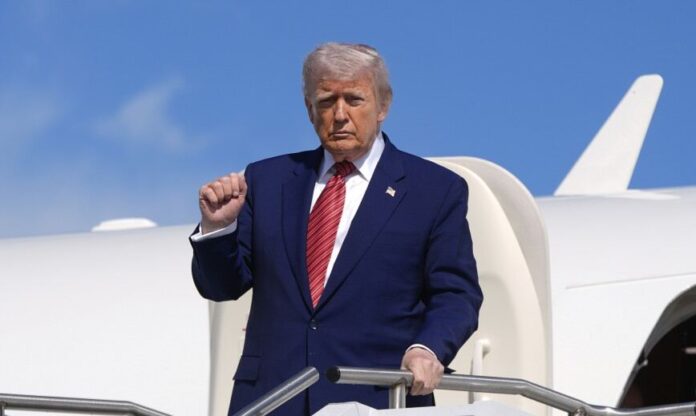Trump Threatens Trade War Again, Targets EU and Apple
U.S. President Donald Trump has reignited global trade tensions by issuing fresh threats against the European Union and tech giant Apple. In a series of posts on his social media platform “Truth Social” on Friday, Trump announced his intention to impose a 50% tariff on EU imports starting June 1 and warned Apple of a 25% tax on iPhones sold in the U.S. if they are not manufactured domestically.
These dual threats sent shockwaves through global financial markets, which had recently seen some stabilization after weeks of easing tensions. The S&P 500 dropped 1% in early trading, the Nasdaq fell 1.2%, and European shares plunged by 1.5%.
Trump criticized the European Union for being “created to take advantage of the United States” and expressed frustration over stalled negotiations. According to Trump, talks with the EU are going nowhere, and aggressive action is now necessary.
U.S. Treasury Secretary Scott Besant backed Trump’s stance, saying the EU needs a “wake-up call” to negotiate seriously, adding that other countries are engaging in talks with Washington in good faith.
Trump also targeted Apple, warning that unless iPhones sold in the U.S. are made domestically, not in India or elsewhere, a 25% tariff would be imposed. Apple has not responded publicly to the threat. However, legal experts say that targeting a specific company with tariffs could face significant legal hurdles.
Despite this, Trump claimed he had already informed Apple CEO Tim Cook of his expectations regarding U.S.-made iPhones.
Analysts warn that if a 50% tariff is imposed on EU goods, it could raise prices on a wide range of products — from German cars to Italian olive oil. Last year, EU exports to the U.S. totaled around €500 billion ($566 billion), with Germany, Ireland, and Italy among the top exporters.
Following Trump’s remarks, shares of major European carmakers and luxury brands — among those most likely to be affected — dropped significantly.
Kathleen Brooks, Director of Research at XTB, said Trump has historically shown animosity toward the EU and has had strained relationships with its leaders, increasing the likelihood of a prolonged trade conflict.
Apple is accelerating its shift of production from China to India in anticipation of future tariffs. The company plans to manufacture most iPhones sold in the U.S. in India by the end of 2026. However, the chances of Apple relocating production entirely to the U.S. remain slim.
Earlier this year, Apple announced a $500 billion investment across nine U.S. states — but not for iPhone manufacturing.
DA Davidson analyst Gil Luria said it is unrealistic to expect Apple to meet Trump’s demand within the next three to five years.
Trump’s tariff threats caused Apple’s shares to drop 2.5% in pre-market trading, dragging U.S. stock futures down as well.



